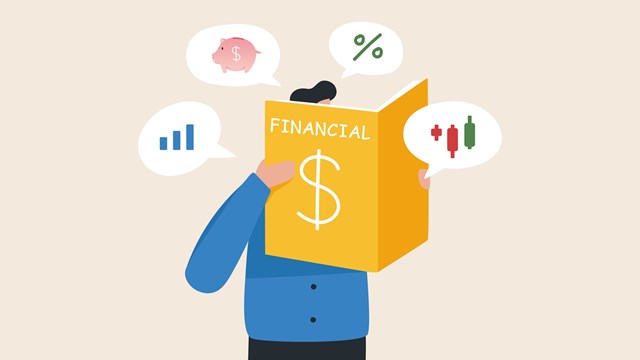It seems as though everyone is talking about refinancing these days. With interest rates at an all-time low, more and more
homeowners are taking advantage of the opportunity to reduce their monthly mortgage payments and/or take more equity out of their homes for capital improvements, college tuition, a new car or a much-needed vacation.
According to the New York City Rent Guidelines Board's 1998 Mortgage Survey, the average up-front costs charged by banks have declined to less than one percent for refinanced loans and terms have become more flexible in response to greater levels of demand and declining defaults in the past five years. The survey also found that refinancing activity continues to sustain the increased momentum of mortgage lending activity. About half the lenders completing the survey reported refinancing 25 to 100 percent of the outstanding loans in their portfolios at lower rates.
The Rule of Two
If you are considering such a move, there are two key areas you'll need to research: How much will it save now and in the long run? And how much will it cost? In the old days the rule of two was applied, meaning that refinancing was recommended whenever mortgage money was available for at least two percent less than the interest rate on the present mortgage, if there was no intention of selling the unit for at least two years. The theory behind this rule was that it would take about this long for the monthly savings from the lower rate to erase the costs of refinancing, which typically include a mortgage application fee, credit check, property survey and appraisal, title search and points or extra interest payable in the first year of a new loan.
Even though this general rule of thumb was flawed to begin with, in today's market it has been completely thrown out the door. Since the mortgage industry has become so competitive, with mortgage brokers competing with banks and rates continuously falling, refinancing may pay off even if you can only get a minor reduction in interest rate.
There are numerous reasons why people choose to refinance their mortgages. Homeowners who have an adjustable rate mortgage (ARM) but long for the certainty of knowing exactly what their payment will be for the life of the loan, can convert to an ARM with a lower interest rate or more protective features (such as a better rate and payment caps). In order to build up equity more quickly, homeowners can convert to a shorter-term mortgage. Refinancing is also a great way to draw equity from a home to get cash for a major purchase or for a child's education.
Even if refinancing does not seem worth the cost, it may be possible to obtain all or some of the new terms you want by agreeing to a modification of your existing loan instead of refinancing. With the market as competitive as it is this may not be as difficult as it seems.
Doing the Math
Instead of using the rule of two to determine whether refinancing is the right thing to do, unit owners should make a simple comparison of how much refinancing would save each month, how much it would cost and how long it would take to fully recover that cost. It's possible for a homeowner with a 30-year, fixed-rate mortgage to make money on as little as a half percent change in interest rate if the property is going to be held long enough, says Obed Ben-Ami, a senior loan offic ffb er with Sterling National Mortgage, a mortgage bank in Great Neck, Long Island. On the other hand, people who go from a fixed-rate mortgage to an adjustable could conceivably recover the cost of the new loan in as little as five or six months.
For example, if the unit owner has a $200,000 fixed-rate mortgage at 8.5 percent, the payment would be $1,538 per month in principal and interest. The same mortgage at eight percent would cost $1,458, a difference of $80 a month. Assuming that the new loan could be obtained with no points and closing fees of $3,000, it would take a little over three years to cover the cost of the refinancing. After that, the unit owner would enjoy savings of $960 a year for the life of the loanthat would be $28,800 on a 30-year mortgage. On larger mortgages, of course, the return is even greater.
For those thinking about switching from a fixed-rate to an ARM, the scenario gets a bit more interesting because it means that those who are contemplating selling their units within the next year or so can take advantage of the initial lower rates that adjustable-rate mortgages carry.
The homeowner with the $200,000, 30-year mortgage at 8.5 percent and paying $1,538 a month could easily refinance to an adjustable rate mortgage at 6.5 percent with little or no out-of-pocket expense, explains Ellen Bitton, president of Park Avenue Mortgage based in Manhattan. The monthly payment on the new mortgage would be $1,264, a savings of $274 a month or about $3,200 a year. That's about three months of mortgage payments absolutely free.
Bitton stresses that switching from a fixed-rate to an adjustable mortgage can be more of a risk especially if the owners decide not to sell the apartment. You can find yourself saddled with an even higher interest rate than before, because interest rates may increase to more than you were originally paying as part of the adjustable rate.
Shopping Around
Once the decision has been made to refinance, there are steps that should be taken to make sure that you get the best possible rate available. One mortgage broker recently had a client who is a vice president at Chase Manhattan Bank. He came to her after his own bank could only find a loan with a high rate. By working with the broker she was able to shop around and find a much lower rate than what his company offered. In the end he was able to convince his company to match the lowest rate. The moral of the story is that your local bank still may not get you the lowest possible rate. Just like finding a home by working with a real estate broker, a mortgage broker can help find you the loan that best suits you and works to your advantage.
Ben-Ami says that homeowners should think of their mortgages the way they think of a cash investment. If you have $200,000 in a money-market account and the guy across the street offers you a quarter of a percent more than you're already making, you're going to move your money to the guy across the street, right?
However, Eric Wallberg, a mortgage consultant at Manhattan-based New York Mortgage Corp, warns, Watch out for some of the loans that offer no out-of-pocket expenses. In some cases the costs are added to the mortgage amount making them payable, with interest, over the long run. The best way to save on the cost of a mortgage is to pay a slightly higher higher interest rate to eliminate any points being charged.
Before running out to your lender, there is another consideration to keep in mind. Jeff Carpenter, a loan officer with Emigrant Mortgage Corp. reminds potential refinancers that, When an existing mortgage is refinanced with a new long-term, fixed-rate mortgage, the borrower is essentially starting from square one once again, most often with the loan balance spread out over another 30 years. Carpenter also advises against refinancing from a 30-year mortgage to a 15-year one unless the difference in the interest rate is significant. You can always make extra payments on a 30-year mortgage, but you can't stretch out a 15-year loan.
Taking this into c ffb onsideration Jim Neill, a condo owner in Ossining, New York, refinanced an 8.13 percent ARM with a 30-year term and replaced it with a 15-year fixed-rate loan at 6.75 percent. His monthly payment jumped by $200, but now he and his wife will own their condo outright by the time they retire. In addition, the total interest on the 15-year loan will come to $95,447, versus $222,234 on the remaining life of their ARM, assuming their adjustable rate would have held steady at 8.13 percent. This is forced savings, explains Neill. When we retire, we can scale down and take equity out of the house.
What Does it Cost?
Don't forget that there are significant costs involved in refinancing a mortgage. The first charge is the application fee, which is imposed by the lender and covers the initial costs of processing the loan request and checking credit reports. There is also a title search fee, which covers the cost of examining the public record to confirm ownership of the unit. Title insurance is also required, which is usually issued by a title insurance company to insure against any loss caused by discrepancies in the title to the property. Be sure to ask the company carrying the present policy if it can re-issue your policy at a re-issue rate. This can save you up to 70 percent of what it would cost for a new policy.
The lender will also charge an attorney review fee. This is paid to the attorney that conducts the closing for the lender. Settlements are conducted by lending institutions, title insurance companies, escrow companies, real estate brokers and attorneys for the buyer and seller. In most situations, the person conducting the settlement is providing a service to the lender. Of course it is always a good idea to have your own attorney to represent you at all stages of the transaction including the closing. This will be another fee to consider.
Additonal fees involve the loan origination, discount points and appraisal. The origination fee is charged for the lender's work in evaluating and preparing your mortgage loan. Discount points are prepaid finance charges imposed by the lender at closing to increase the lender's yield beyond the stated interest rate on the mortgage note. One point equals one percent of the loan amount. For example, one point on a $75,000 loan would be $750. In some cases, the points you pay can be financed by adding them to the loan amount. The total number of points a lender charges will depend on market conditions and the interest rate to be charged. The appraisal fee pays for an appraisal, which is a supportable and defensible estimate or opinion of the value of the unit.
A prepayment penalty on your present mortgage could be the greatest deterrent to refinancing. The amount charged varies by state, the type of lender and the type of loan. Prepayment penalties are forbidden on various loans including ones from federally charted credit unions, FHA and VA loans and some other home purchase loans. The mortgage documents for your existing loan will state if there is a penalty for prepayment. In some loans, you may be charged interest for the full month in which you prepay your loan. Other fees may include a VA loan guarantee, FHA mortgage insurance or private mortgage insurance.
In general, plan on paying an average of three to six percent of the outstanding principal in refinancing costs, plus any prepayment penalties and the costs of paying off any second mortgages that may exist. One way of saving on some of these costs is to check first with the lender who holds your current mortgage. The lender may be willing to waive some of the fees, especially if the work relating to the mortgage closing is still current. This could include the fees for the title search, surveys and inspections.
Time is Everything
Another advantage to refinancing today is that the process has become rather painless and less time-consuming, allowing you to apply for the new loan over the phone or Internet in a matter of minutes. I don't think it ate half a day of our time, recalls Neil b3b l. We did the majority of the process over the phone and only had to show up in person when we had to sign all the papers.
Wallberg praises the Internet for making the mortgage process easier. The Internet is one of the best places to do research and educate yourself before you jump into the refinancing process. Many sites even have mortgage calculators that can help you figure out what all of your closing costs will be. At the same time, however, Wallberg advises clients to be careful about choosing a broker and actually refinancing over the Internet. You want to check out the company and make sure they are registered and licensed brokers. Otherwise you can end up with problems in the long run.
Ms. Cooper is Editorial/Internet Coordinator of The Cooperator.







Leave a Comment